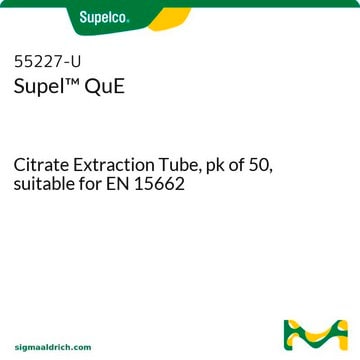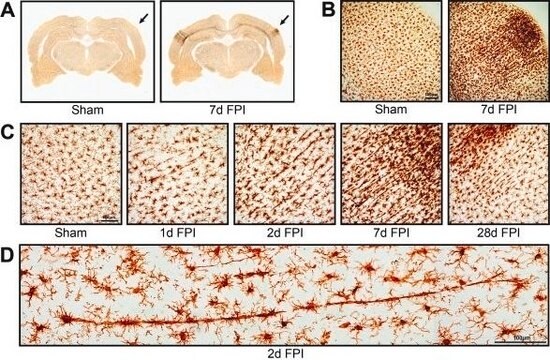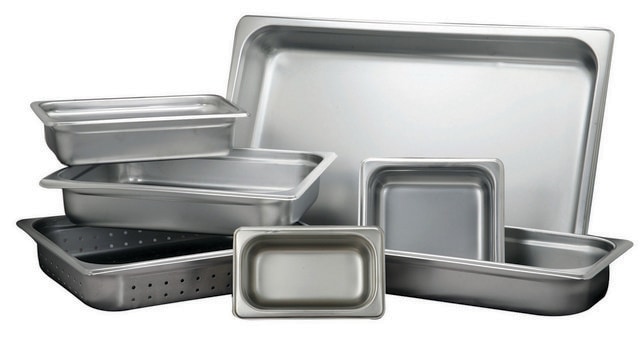03-0188-00
SMC® Human Phospho-α-Synuclein (S129) High Sensitivity Immunoassay Kit
Synonym(s):
p-α-synuclein S129 immunoassay kit, p-α-synuclein Ser129 immunoassay kit, p-α-synuclein Single Molecule Counting Kit, p-α-synuclein ultra-sensitive immunoassay
About This Item
Recommended Products
species reactivity
mouse, monkey, cat, rat
manufacturer/tradename
SMC®
assay range
sensitivity: 0.1 pg/mL
(Lower Limit of Quantification)
inter-assay cv: 7%
intra-assay cv: 6%
(five normal plasma samples run in triplicate by 3 different operators on 3 different days.)
technique(s)
single molecule counting: suitable
storage temp.
2-8°C
General description
Assay protocols are similar to existing sandwich ELISA methods with two key differences:
1) Elution buffer disrupts the sandwich, separating the labeled detection antibody for quantification.
2) The Erenna and SMCxPRO® immunoassay systems detect analytes using Single Molecule Counting (SMC®) technology.
Specificity
Specificity to the following species analytes were tested with the following results:
Monkey – 100%
Cat – 100%
Rat – 100%
Mouse – 25%
Beagle – 25%
Cross Reactivity:
No cross-reactivity was observed to an alpha-synuclein recombinant protein purified from E. Coli (i.e. non-phosphorylated alpha-synuclein).
Accuracy:
CSF Recovery: 5 CSF samples spiked with average recovery of 100% and a range of 95-103%
Serum/Plasma Recovery: 2 serum samples and 3 plasma samples with average recovery of 87% and a range of 83-91%
Application
This new streamline kit has the following features including:
- Improved options for sample prep and incubation
- Lyophilization of the standard provides the kit at one storage condition
- Removal of a plate transfer step
- Increased reagent volumes to accommodate automation
- Validated to run on both SMCxPRO® and Erenna
Research Category:
Neuroscience, neurological
Research Sub-Category:
- Neurodegenerative Diseases
- Neuronal & Glial Markers
- Neuroscience
- Nervous System
Packaging
Components
- Assay Buffer
- Phospho-a-synuclein (S129) Coated Beads
- Standard Diluent
- Phospho-a-synuclein (S129) Detection Antibody
- Phospho-a-synuclein (S129) Standard
- 10X Wash Buffer
- Buffer D
- Elution Buffer B
Legal Information
Disclaimer
Signal Word
Danger
Hazard Statements
Precautionary Statements
Hazard Classifications
Acute Tox. 3 Dermal - Acute Tox. 4 Inhalation - Acute Tox. 4 Oral - Aquatic Chronic 3 - Eye Irrit. 2 - Repr. 1B
Storage Class Code
6.1C - Combustible acute toxic Cat.3 / toxic compounds or compounds which causing chronic effects
Certificates of Analysis (COA)
Search for Certificates of Analysis (COA) by entering the products Lot/Batch Number. Lot and Batch Numbers can be found on a product’s label following the words ‘Lot’ or ‘Batch’.
Already Own This Product?
Find documentation for the products that you have recently purchased in the Document Library.
Related Content
Discover how to expand neuroscience biomarker research with high sensitivity immunoassays, such as Single Molecule Counting (SMC®) assays. These assays give researchers the tools they need to detect low-abundant blood-based biomarkers and expand biomarker options in neuroscience research.
Discover how to expand neuroscience biomarker research with high sensitivity immunoassays, such as Single Molecule Counting (SMC®) assays. These assays give researchers the tools they need to detect low-abundant blood-based biomarkers and expand biomarker options in neuroscience research.
Discover how to expand neuroscience biomarker research with high sensitivity immunoassays, such as Single Molecule Counting (SMC®) assays. These assays give researchers the tools they need to detect low-abundant blood-based biomarkers and expand biomarker options in neuroscience research.
Discover how to expand neuroscience biomarker research with high sensitivity immunoassays, such as Single Molecule Counting (SMC®) assays. These assays give researchers the tools they need to detect low-abundant blood-based biomarkers and expand biomarker options in neuroscience research.
Our team of scientists has experience in all areas of research including Life Science, Material Science, Chemical Synthesis, Chromatography, Analytical and many others.
Contact Technical Service








